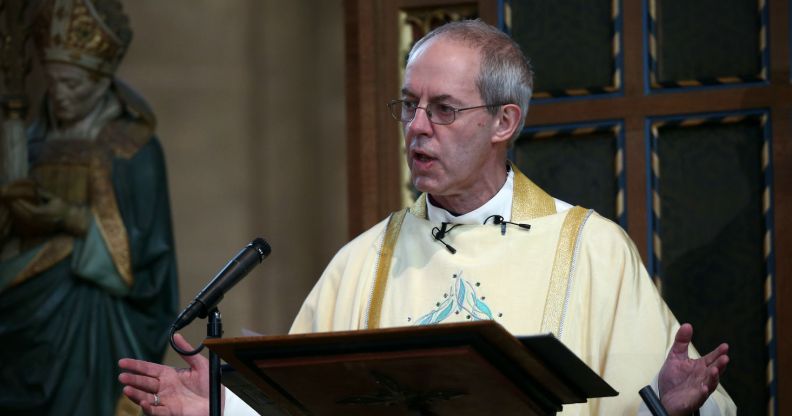Church of England accused of twisting cinema ad row to create ‘media storm’

The Church of England has been accused of twisting equality laws to its benefit, after attacking a decision to block religious cinema ads.
Digital Cinema Media, which provides ads to the UK’s major cinema chains, came under fire for blocking a bid for the Church to screen a Lord’s Prayer advert in cinemas – under a long-standing policy of “not accepting political or religious advertising”.
The Church threatened “the possibility of legal proceedings” under the Equality Act – despite recently arguing its own exemption from the same laws allow it to discriminate against gay clergy.
The Equality and Human Rights Commission (EHRC) this week announced that the cinema case will be subject to an investigation – a decision condemned by secularist groups.
Stephen Evans of the National Secular Society (NSS) said: “As the EHRC’s own guidance on freedom of expression makes clear, free speech considerations do not apply to decisions taken by private companies.
“The Church may be disappointed but it cannot claim its free speech has been infringed simply because a cinema chain exercises its commercial freedom not to screen religious advertising in its cinemas.
“Cinemas are free to decide for themselves which material they wish to screen and the Church of England has failed to advance any cogent legal reason why cinemas should be forced to screen whatever the Church wants it to.
“Even more concerning is that the Commission has offered to intervene and assist the Church without giving any legal justification either, instead echoing the Church’s victimhood narrative on this issue.
He added: “This has placed unwarranted pressure on a commercial company operating within the law, and we believe in good faith.
“The even-handedness of DCM’s policy also means it has not been unlawfully discriminatory. The actions of the Church and the Commission therefore represent an unreasonable interference on DCM’s lawful commercial activities.”
The group says DCM’s long-standing policy of not accepting political or religious advertising cannot be discriminatory – as it applies regardless of the specific religious or political beliefs involved.
DCM say the policy was “informed by feedback from customers” and it believed a “clear neutral stance remains the fairest policy for all”.

The NSS alleges that the media frenzy around the row was concocted by the Church, who were aware the ad would not be accepted before filming had even concluded.
Mr Evans added: “It’s understandable that a company delivering an entertainment experience for all may want to avoid overtly religious and political content – not because it is offensive – but because both are subjects about which people feel very strongly and differently about.
“DCM’s policy simply reflects that”.

